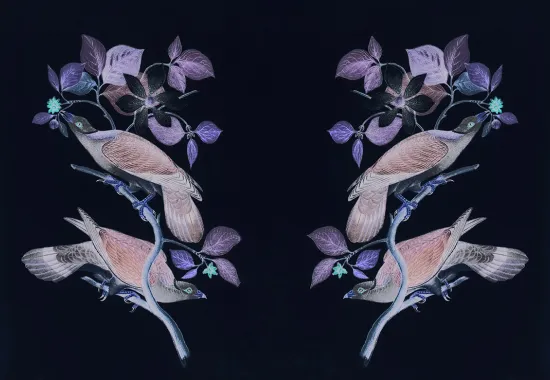Happiness and the Tough Stuff

Happiness is a changing thing. One of the first statements on happiness I remember as a child came from watching reruns of the TV show Taxi. At one point, the Danny DeVito character, a cantankerous individual, surprises a love interest with the line: "Happiness is hard to come by in this life, and you have given me more than my share." Eight-year-old me tucked that one away, mulling it over now and then throughout life afterwards.
The phrasing alone makes the argument. The first half charges through in the guise of fact, or so it struck a child in a single-parent household in South Texas. Most things were “hard to come by” growing up: food, money, sleep, etc. My mother and aunt kept me and themselves alive, from garage apartment to garage apartment, by working in restaurants. At some point, they each worked at two different restaurants at one time. Their not being around most of the time provided me with a solitude that is similar to what I feel at the blank page. Could be those afternoons and nights alone made me brave, or at least familiar, with waiting.
Then there’s the second half of the quote: the idea of being given something in abundance (aside from silence) was foreign to me. The concept of having a “share,” though, was familiar. I remember once sitting in a car in a 7-Eleven parking lot one night, and having my mother explain to me why she couldn’t buy me a comic book. My mother pulled no punches, but she held back no tears either. It was clear to me early on that we were poor, but also that our want wasn’t a lack; we wanted after basics as much as we wanted the best for each other. Survival meant not ignoring want, but facing it by making do with your share of it.
In my poem “Stitched,” I detail the story of going shopping with my mother and aunt after my mother had been in a car accident. It was characteristic of my aunt to mock things; her pointing to my mother’s stitched stomach and suggesting we steal things by essentially stuffing them inside my mother — something that is outright disturbing to type up matter-of-factly — is a good example of her sense of humor. My aunt said this to me with a half-smile, and I remember stalling over the words. It wasn’t until years later, working on my second book, Small Fires, that I found myself returning to and puzzling over the logic and complicated nature of that moment. It was a joke of want, which is a statement of lack as well; and it was a statement of metaphor too. It’s the kind of thing that can be said as a joke or in a poem, but when approached in prose — as I am trying to do in writing this — falls apart, or rather, unravels into seriousness.
When the song “Beautiful Day” was first released, I remember reading an interview with Bono where he talked about how it is so much easier to play the blues. Writing a song that touches on joy, on real joy, that’s the tough stuff. I feel something similar with my poems. If I didn’t work at it, my poems would all be in minor keys. Part of what I mean by “work at it” is to refrain on my part from over-narrating and instead let the stories tell themselves; that is, let the flickers of happiness and stitches of sadness, all of it, shine through.
Illustration by Matt Manley. Matt has been working as a freelance illustrator for over twenty years. His illustration is primarily figurative and symbolic with surrealist leanings, and past client work includes editorial, corporate, medical, book, and higher education. Though in the end his work is technically digital collage, the process integrates both traditional and digital media. Collage elements are original oil paintings and drawings, with occasional scanned found objects and photos added to the mix, all united in Photoshop .
Recommended
The Shirt
After Hearing David Rothenberg Sang with Birds
Frothing Pink Poodle Droppings






